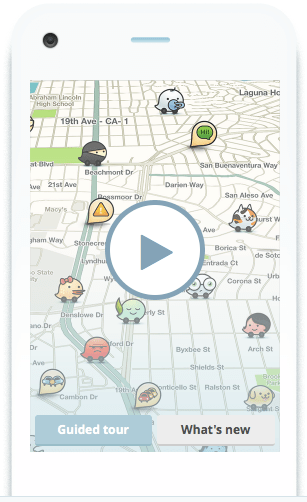Transportation apps aimed at drivers are increasingly ubiquitous. There are apps to help people find a parking space, or to allow drivers to report a pile-up on the interstate to other drivers in real time.

But as Ryan Holeywell at Governing Magazine recently pointed out, these apps pose a serious danger to the public. We know texting and driving is deadly. And the truth is, using a cell phone app is no different. According to a recent study published in the New England Journal of Medicine, any number of "secondary activities" that distract from the cognitive task of driving present a serious safety risk.
Holeywell reached out to some safety experts, and the consensus is that using driving apps while driving is a very bad idea. "Our advice for motorists continues to be not to use your cellphone while you're driving -- for any purpose," says Jonathan Adkins, deputy executive director of the Governors Highway Safety Association.
App makers defend their products by saying they can be used hands-free. But that overlooks the actual source of distractedness -- it's our minds, not our hands:
David Strayer, a University of Utah psychology professor who conducted a landmark distracted driving study for AAA last year, says voice commands don't necessarily improve safety because it's not just hands removed from the wheel that pose a risk -- it's the mental distraction that comes with focusing on tasks other than driving. Turn-by-turn directions can improve safety, Strayer says, so long as drivers enter the address before they start moving and don't use the devices while they're driving. If you try to input any information on the go -- whether by voice or by hand -- Strayer says, "Watch out."
According to the National Safety Coalition, use of hands-free devices still involves mental multi-tasking which causes drivers to have "difficulty monitoring their surroundings, seeking and identifying potential hazards, and responding to unexpected situations."
Right now, however, most state laws regarding distracted driving simply ban texting and driving. And that means apps like Waze -- a navigation app that encourages users to provide real-time updates about collisions and other road conditions -- are a-ok in the eyes of the law.





